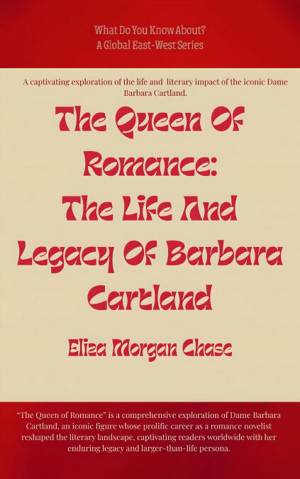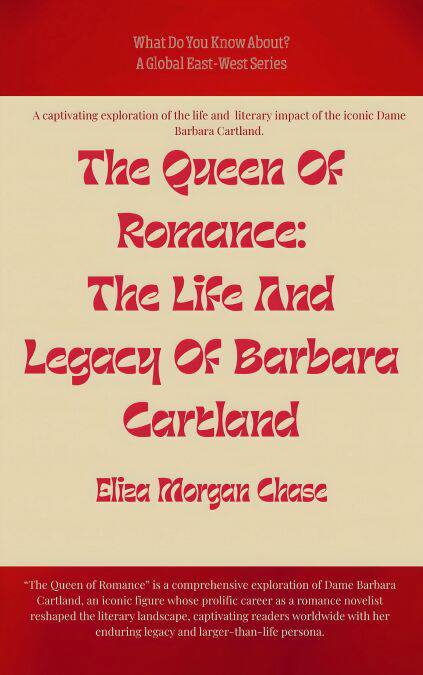
- Retrait gratuit dans votre magasin Club
- 7.000.000 titres dans notre catalogue
- Payer en toute sécurité
- Toujours un magasin près de chez vous
- Retrait gratuit dans votre magasin Club
- 7.000.0000 titres dans notre catalogue
- Payer en toute sécurité
- Toujours un magasin près de chez vous
The Queen Of Romance: The Life And Legacy Of Barbara Cartland EBOOK
What Do You Know?
Eliza Morgan ChaseDescription
Dame Barbara Cartland (1901-2000) remains one of the most prolific and recognizable romance novelists ever. With an astounding career spanning over seven decades, she published an estimated 723 books, selling more than 750 million copies worldwide and earning a place in the Guinness Book of World Records. Her name became synonymous with romance fiction, particularly historical romance, creating an enduring legacy that continues to captivate readers.
Born in Edgbaston, Birmingham, England, Cartland's early life was marked by tragedy when her father died in World War I. Despite financial challenges, she was educated at private schools and debuted in London society in the 1920s.
Her vivacious personality and flair for publicity quickly established her as a notable socialite and columnist before she turned to fiction writing.
Cartland's first novel, "Jigsaw," published in 1923, marked the beginning of an extraordinary literary career. While her earliest works explored contemporary issues, she found her true voice in historical romance novels featuring innocent heroines, dashing heroes, and invariably happy endings. Her formula—strict moral codes, chaste relationships until marriage, and love conquering all—resonated with millions of readers worldwide.
Beyond her writing, Cartland was a remarkable figure in her own right. Always dressed in her signature pink, adorned with false eyelashes and flamboyant jewellery, she cultivated a public persona as distinctive as her novels. She was also notably progressive in many ways—campaigning for health reform, advocating for Romay's rights, serving as a Conservative councillor, and even developing her own line of vitamins and health foods.
Her connections to British royalty added another fascinating dimension to her life. She was step-grandmother to Diana, Princess of Wales, and claimed to have guided the young princess. Cartland served in various capacities during World War II, including being a welfare officer for Hertfordshire and working with the War Office. Cartland's approach to writing was as extraordinary as her output. In her later years, she dictated her stories to secretaries, sometimes completing a book in a mere two weeks.
Her novels followed a reliable formula: They were set primarily in the Victorian era, featuring virginal heroines, aristocratic heroes, and conflicts resolved through love and virtue. Critics often dismissed her work as formulaic and simplistic, but her commercial success and devoted readership speak to her understanding of what many romance readers desired—escapism, moral certainty, and the triumph of love.
Her books provided a consistent vision of romance that transported readers to a world where true love inevitably prevailed. Barbara Cartland's legacy extends beyond her staggering bibliography. She represents an era of romantic idealism, unwavering productivity, and a larger-than-life personality. This book explores her life and work and offers insights into changing attitudes toward romance, women's reading habits across the 20th century, and the evolution of popular fiction.
Spécifications
Parties prenantes
- Auteur(s) :
- Editeur:
Contenu
- Langue:
- Anglais
- Collection :
Caractéristiques
- EAN:
- 9798230082767
- Date de parution :
- 08-04-25
- Format:
- Ebook
- Protection digitale:
- Adobe DRM
- Format numérique:
- ePub

Les avis
Nous publions uniquement les avis qui respectent les conditions requises. Consultez nos conditions pour les avis.






